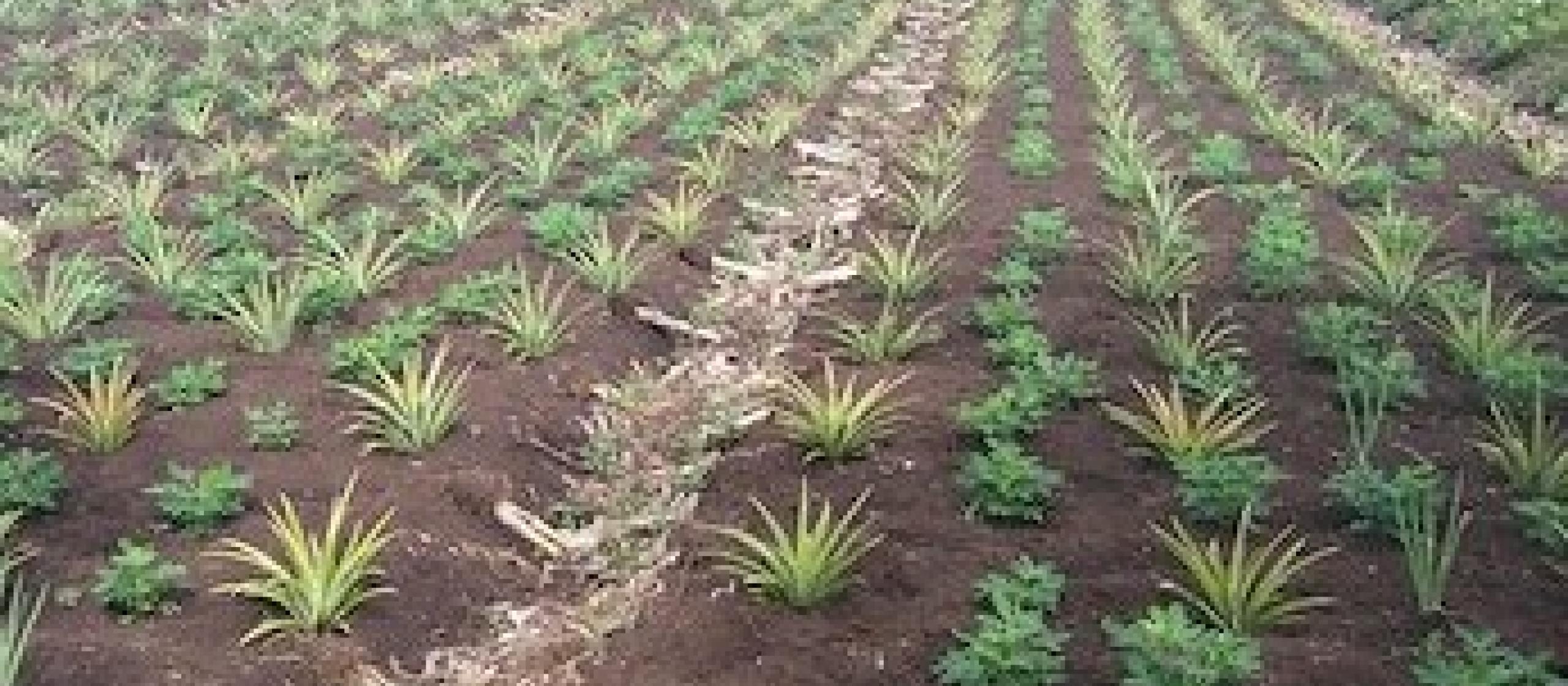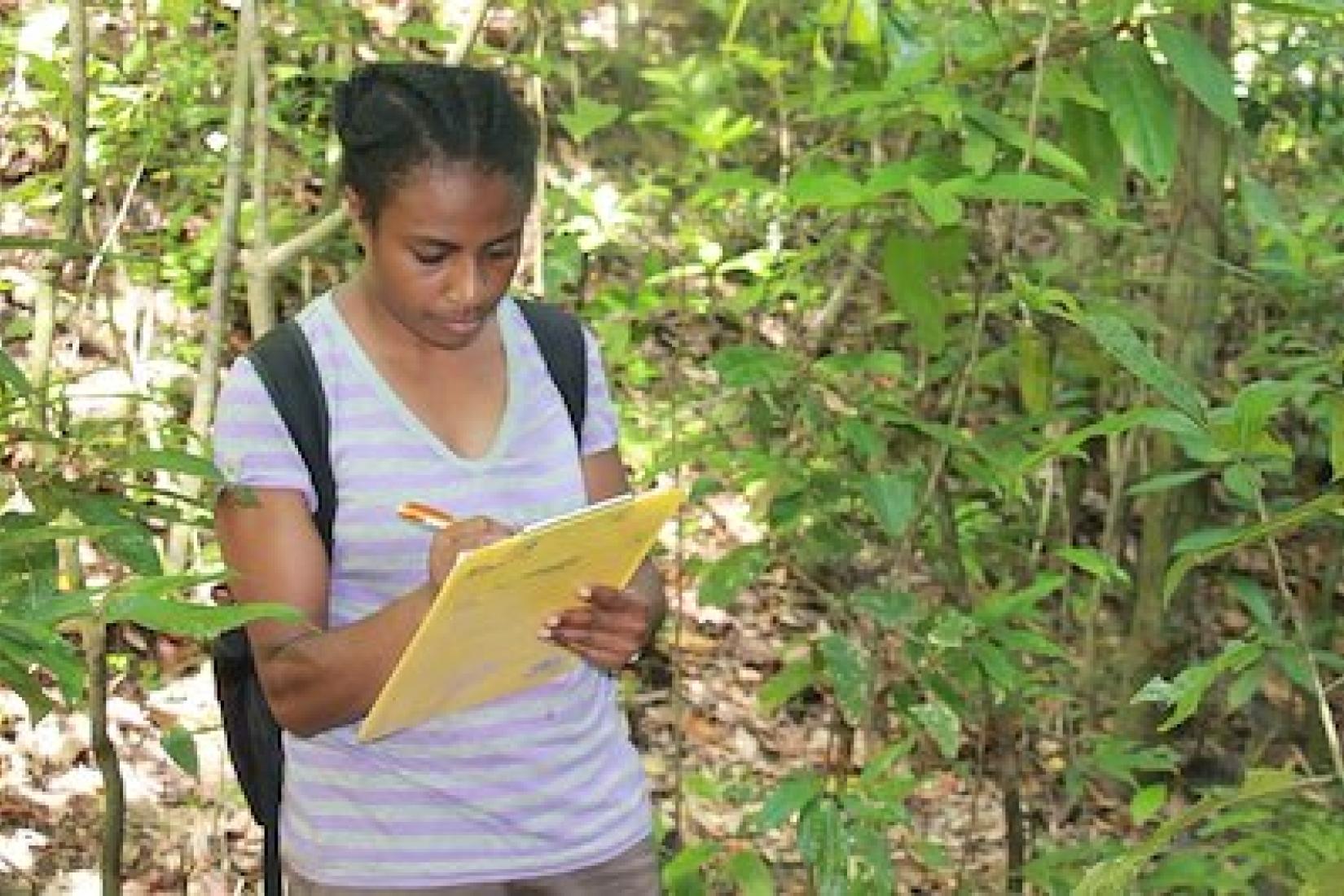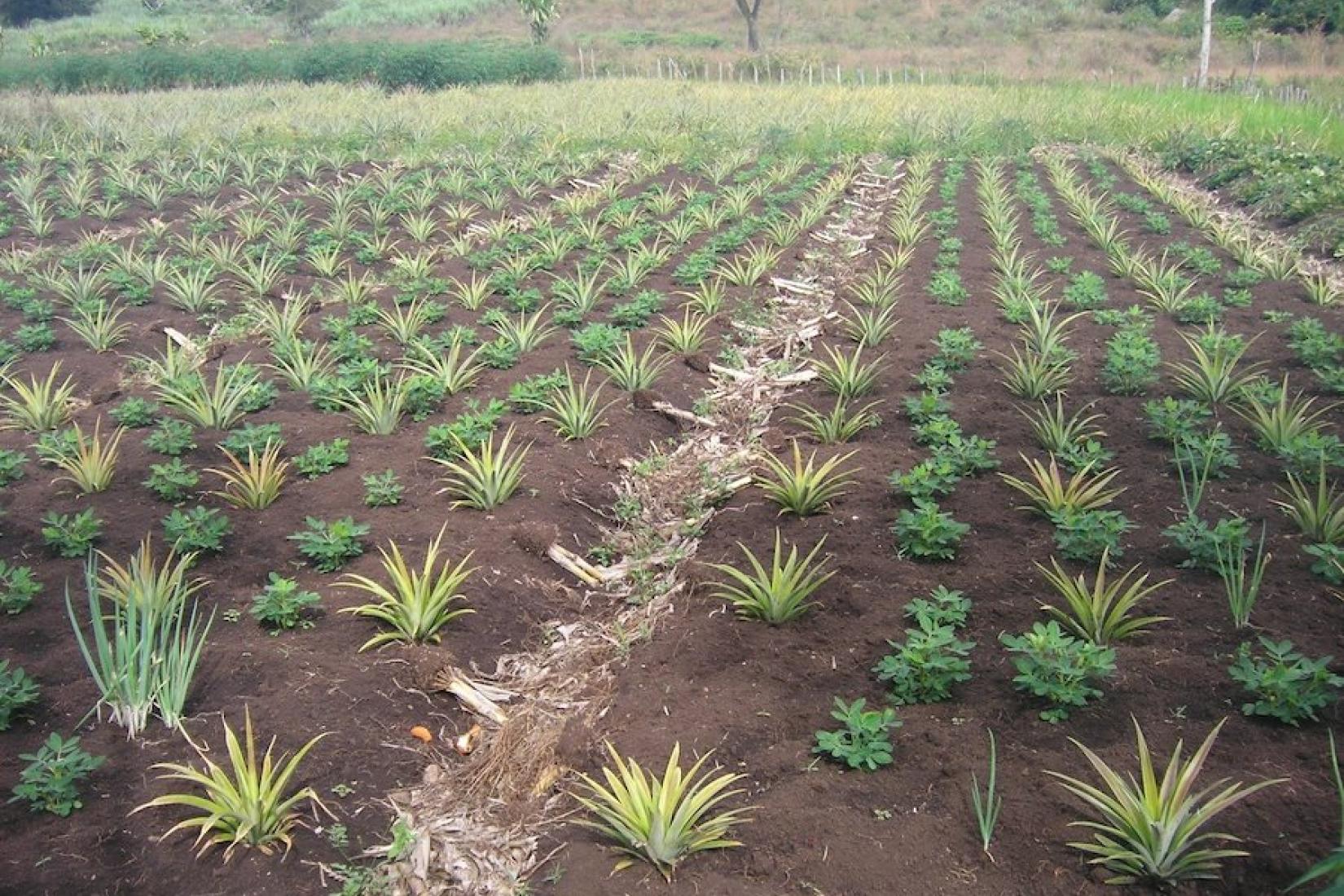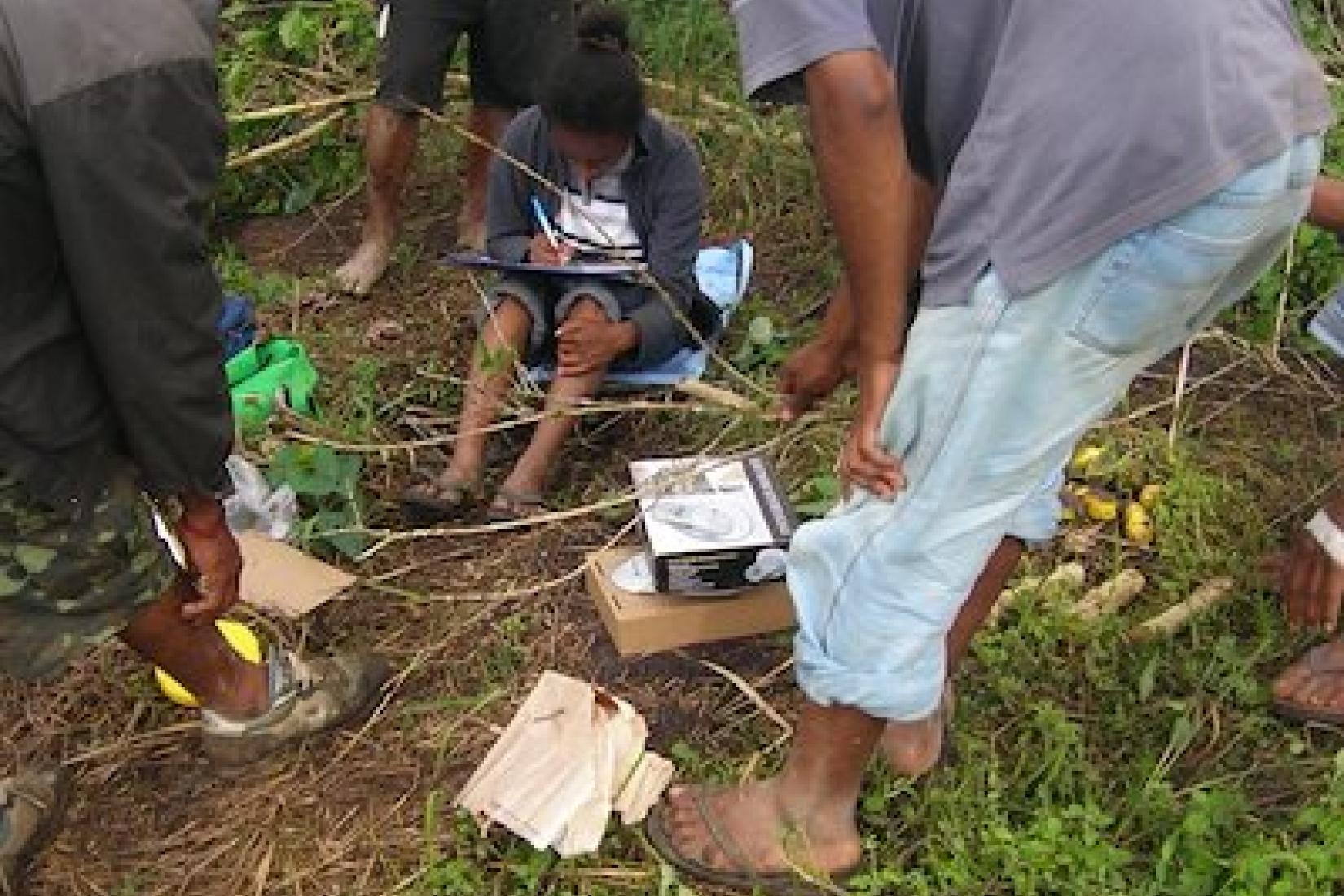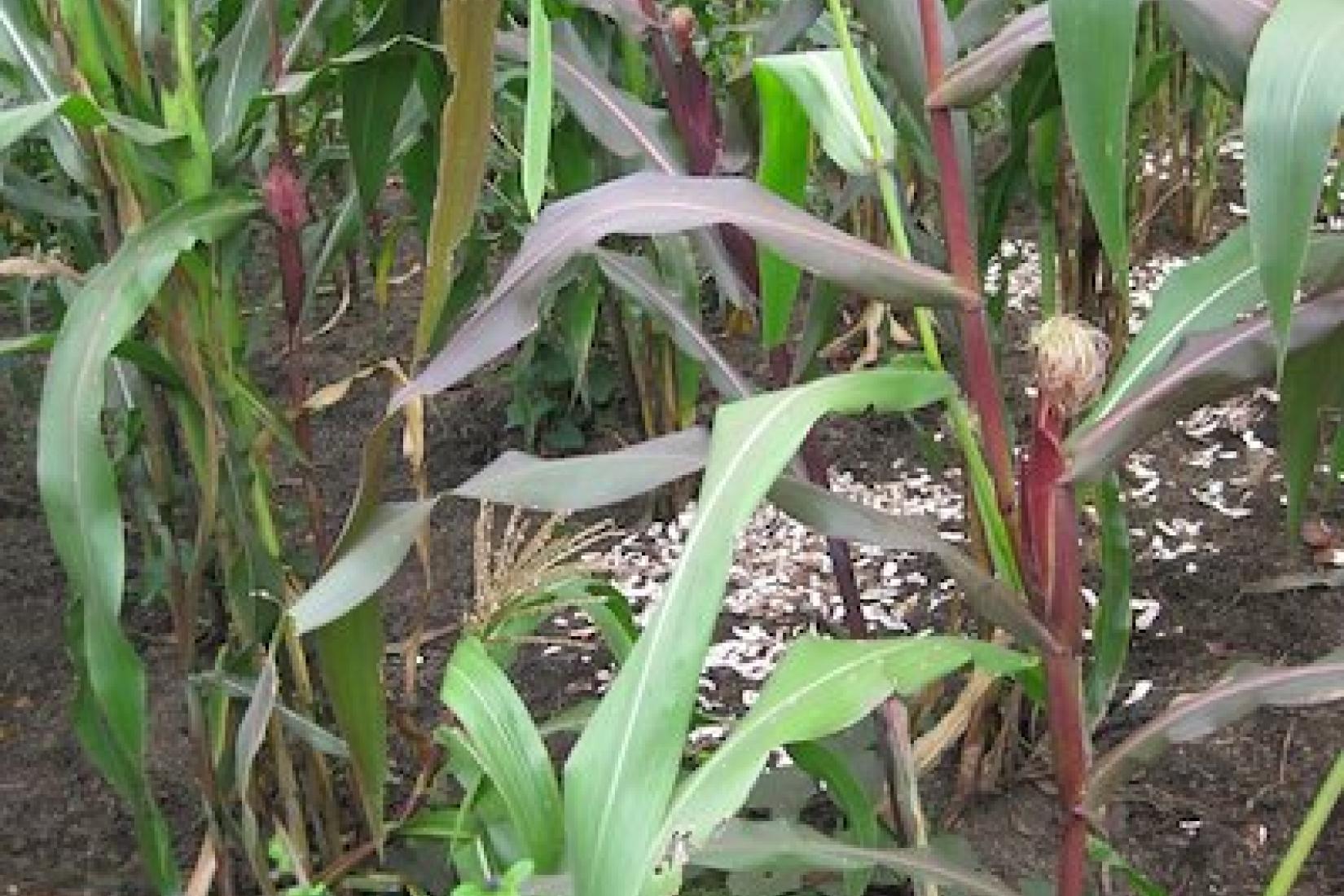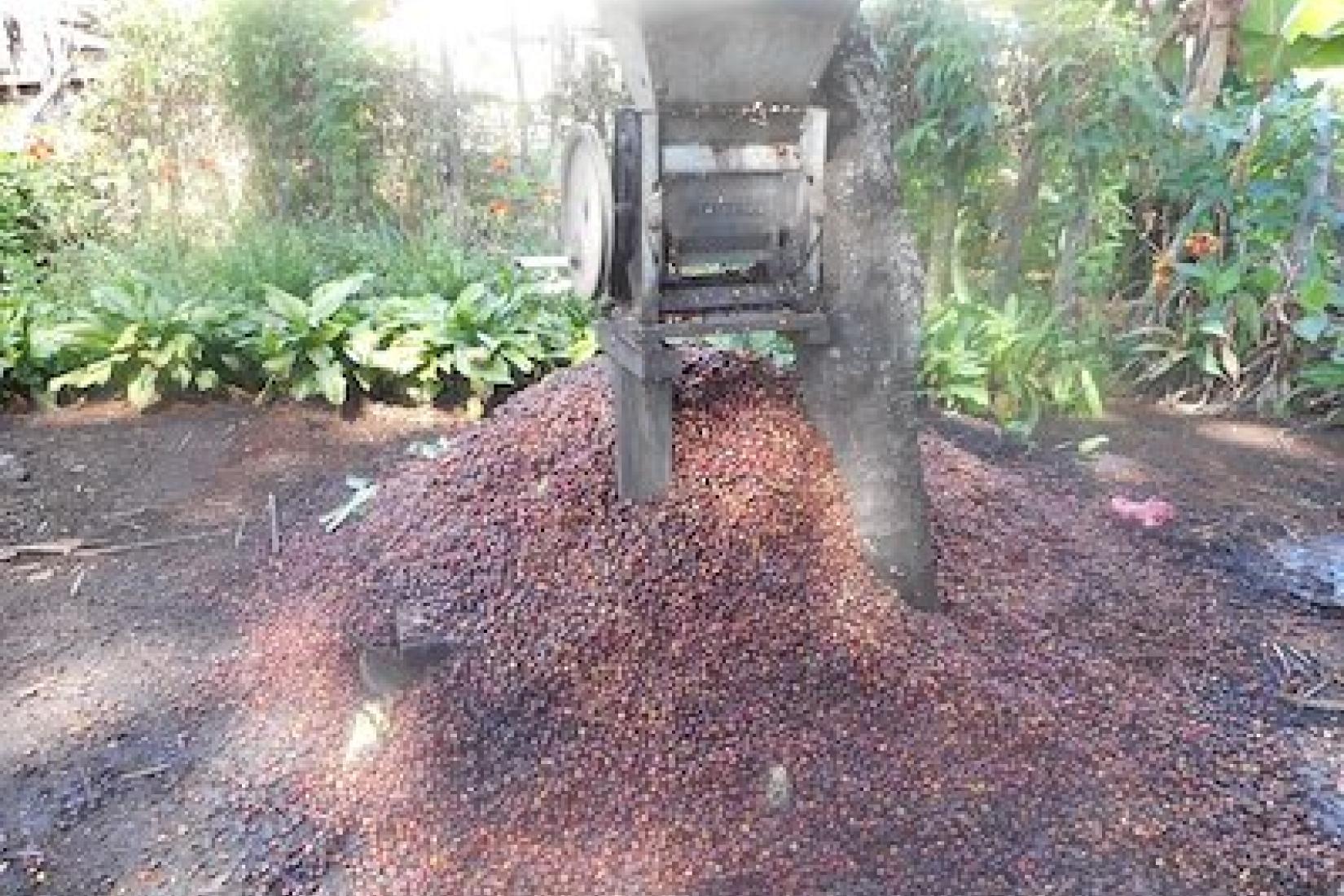The process of crop harvesting and preparation results in the production of residues or wastes that could be better managed to retain soil nutrients. The study showed that the application of crop residue/waste to certain parts of the garden improved the physical and chemical properties of the soil, especially the potassium content.
However, these wastes are often not utilised effectively. For example coffee pulp (produced when processing coffee cherry to parchment coffee) is very high in nitrogen and potassium (important plant nutrients) but is often left to decompose at the pulping station.
The option of retaining crop residues or waste is beneficial for the farming system but may be perceived as inconvenient and not practiced because the value of the nutrients in the waste is not appreciated. For example, the crown of a pineapple is a convenient ‘handle’ to transport the pineapple to market, where it is removed. However, a substantial amount of nitrogen and potassium are present in the crown, which could have returned nutrients to the garden if processed on site.Therefore, adoption of nutrient retention practices will require education about the value of nutrients in waste products versus the value of convenience.
The farmer can increase the fertiliser application rate as the amount of fertiliser applied per plant is quite low and the money spent on purchasing fertiliser to replace nutrients removed from the crop during harvesting can be recouped when the crop is sold in the market.
One of the important lessons learnt during the fieldwork was that there is no ‘standard’ practice—each farmer’s practice varies, even between neighbours growing the same crop. The difference in approaches to farming practices can be attributed to experience, or lack of it. That means, changing the attitude of farmers towards adopting new ideas and farming practices may take a long while.
GROWING RESEARCH CAPACITY IN PNG - EMMA'S STORY
While carrying out this important research in the highlands of PNG, Emma faced the challenging road of obtaining a Master's degree, a journey especially difficult for an early-career scientist with a young family who had never travelled overseas before.
'I would not have thought I had the strength to overcome the constant pressures that came with balancing my studies and looking after my family on my own, while living in a new community here in Australia,' says Emma.
But with financial support from ACIAR through the John Allwright Fellowship, and further assistance from CSIRO, Curtin University and the PNG Coffee Industry Corporation, Emma completed her post-graduate studies at James Cook University. This assistance enabled Emma to further develop her career and take her newfound knowledge back home, enhancing the research capacity of PNG in the process.
As well as overcoming personal challenges to complete her masters, Emma also faced hurdles conducting the research.
'Apart from the country’s challenging geography, working with the people from different communities with differing levels of understanding of my work and agricultural science research is also very challenging,' says Emma. 'A detailed discussion with the farmers at the beginning was important to reduce any problems that might arise during the course of the project.'
Emma completed her thesis in 2017 and is currently working on another ACIAR-funded project through Curtin University, Improving Livelihoods of Smallholder Coffee Communities in PNG, and hopes that inter-cropping vegetables in coffee garden will lead to improved soil fertility, coffee quality and increase farmer income.
The project is supported by the CSIRO and the PNG Coffee Industry Corporation and is due to run until the end of 2021.
